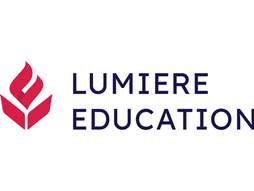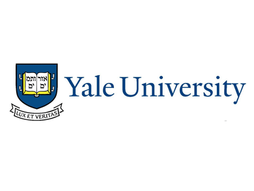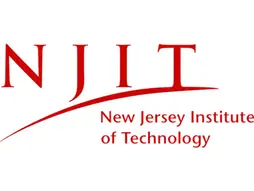We The Students Essay Contest - 8 Tips to Help You Win
Are you a talented writer and passionate about societal issues? Have you seen students in STEM compete in competitions and also want one for yourself? Featuring generous scholarships and the opportunity to have your work published, the We The Students Essay Contest is an internationally-recognized competition for talented young writers to showcase their skills and passion.
What is the We The Students Essay Contest?
We the Students (WTS) is an annual essay competition open to high school students around the world. Created by the Bill of Rights Institute, WTS Essay Contest was created to give students a platform to express their voices on issues that matter to them and gain experience with persuasive writing. The goal of the contest is to encourage students to develop writing skills that will benefit them in higher education and their careers and critically think about the society around them. Essays are judged based on the quality of writing, strength of argument, and originality of ideas. Winners are awarded generous scholarships and have their essays published on the WTS website and in an annual journal.
WTS is known for the diversity of essay topics, ranging from education reform to environmental protection to social issues. Participants are free to choose any topic within the given prompt as long as their essay articulates a persuasive argument and is supported with evidence and coherent reasoning. The open topic and rigorous judging standards have established WTS as a premier contest for high school writers. Winners have gone on to utilize their scholarships at top universities and gain media coverage for their talented writing.
Is the We The Students Essay Contest Prestigious?
WTS is undoubtedly a prestigious essay competition with an open-ended nature of topics, strict judging criteria, and requirement of students to demonstrate sophisticated writing and critical thinking abilities to perform well. Success in the contest exemplifies a student’s capacity for crafting a compelling argument, logical reasoning, and clear prose—all skills that translate to higher education.
The competition offers winners generous $10,000 scholarships and publication of their essays, which many students are then able to highlight in their college applications. Past winners have been accepted to Ivy League schools and other top colleges. The competition’s sponsors include major education companies and its panel of judges comprises members of the US government, professors, published authors, and editors. Overall, WTS offers a meaningful opportunity for talented writers to gain experience, scholarships, exposure, and an impressive achievement to strengthen their college applications.
Who is Eligible to Participate?
The contest is open to all high school students within the United States. As long as a student’s essay is written in English, any student in grades 9 through 12 may enter. All that is required is the ability to craft a compelling essay in response to the given prompt. WTS is an accessible competition for all students, thus anyone, regardless of previous writing strength or GPA can compete, and devote time to crafting a strong essay.
Timeline and Structure of the We The Students Essay Contest
The We The Students Essay Contest takes place annually starting at the beginning of the calendar year. The contest opens for submissions in January, with essays due in April or May. Winners are announced in August and the scholarship money and publication are awarded shortly thereafter, with often 10-18 winners per year. Because the contest encourages political thought and critical thinking about one’s government and civil engagement, prompts reflect this theme, with questions such as “How does an understanding of natural rights and respect build a free society?” or the discussion of free speech and its rights and limitations.
Essays must contain 500 to 800 words on the topic for that year. While there is flexibility in how one approaches the essay and their interpretation of the prompt, essays should articulately argue a clear perspective and support it with evidence and reasoning. Creativity is encouraged as long as the essay addresses the topic at hand. To enter, students can submit their essays through the online portal on the Bill of Rights Institute website.
While the contest aims to give students creative freedom, there are certain standards that must be met. As expected, essays that do not meet length requirements or formatting guidelines, contain hate speech, or plagiarize will be disqualified.
8 Tips to Help You Win
1. Interpret the prompt towards your passions and interests
Your genuine interest will shine through, and judges will see your enthusiasm in your writing. While brainstorming how you are going to structure your essay, you should consider your own experiences, passions, and community to address the prompt. Writing your essay will become much more natural and easy to write if you are able to have a genuine interest in the topic you are writing. For example, when writing about free speech, connect modern limitations of free speech when social media is involved – this is something we all have experience in and something that can serve as a leaping board of your argument, as when the Founding Fathers wrote this amendment, social media and the digital area were, of course, not in consideration.
2. Develop a strong thesis with an original angle
The foundation of any winning essay is a star-studded thesis. You should argue for a stance that has nuance, is thought-provoking, and is something that the reader would not just say “well, of course” to. Your thesis should provide a unique way of seeing your topic that makes judges rethink their assumptions, and even persuade your reader to change their opinion. A strong thesis should be concise, with 1-2 sentences, and from here, build your entire argument around this statement.
3. Back up your writing with strong evidence
Don't just make claims and baseless arguments — substantiate them with statistics, studies, news articles, books, or other credible sources. A good persuasive essay anticipates doubts and counters them with authoritative, tangible evidence. For every key point, you should aim to have at least 2-3 pieces of proof, which should serve as the basis of your argument. If you cannot find 2-3 pieces of solid evidence for your key point, then that should serve as a point to reconsider if you should use that argument. Your school library database or resources like Pew Research Center and Brookings Podcasts offer reports, statistics and studies to build your case.
4. Build your argument from the ground-up and consider all angles
With every piece of evidence and key point, you should connect how this point supports your thesis with undeniable proof. Walk your reader through your argument, as your judge will be reading thousands of other long essays, thus making your reader do as little work as possible maximizes your chances of having a sound argument. Remember that counterpoints to your thesis are not a bad thing, in fact, they are incredible for any strong essay. Address your strongest counterargument and figure out how your thesis counteracts this argument and how your argument still holds up.
5. Use precise, compelling language to make your argument interesting to read
The classic advice with any strong essay is to show, don’t just tell. Clearly explain how this piece of evidence connects to your thesis, not just saying “this proves my thesis.” Be sure to use clean transition words and promote flow within your essay. On a grammatical side, vary your sentence structure for rhythm and flow.
6. Ensure your conclusion is impactful and memorable
Make your reader satisfied that they were able to make it to the end of your essay by having an impactful and strong conclusion. Always make sure to restate your thesis at the end, with your key points that you have argued throughout your essay. Then, making your conclusion memorable is all about expanding your essay past the given prompt; is there a call to action, is there a connection to your own and the reader’s emotions, is there future implications to your essay? A strong conclusion ties everything back to the main takeaway you want to convey and connects to something more deeply personal or real than the scope of your essay.
7. Proofread your essay for grammar and structural mistakes
It is simple, but no matter how strong your essay may be, not having proper grammar can ruin all of it. Double and triple check for any spelling, grammar, or punctuation errors before entering. Read your essay out loud, to yourself or to your family, to catch any awkward phrasings or run-on sentences. Make sure the tone remains consistent, professional, and convincing throughout. Have a teacher, parent, or counselor review as an extra measure.
8. Keep in mind all of the rules, deadlines, and guidelines of the contest
Before even starting your essay, carefully review the full guidelines to ensure your essay meets all length, formatting, and entry requirements. Students every year miss the deadline, or submit their essay incorrectly, and all of their work goes to waste, thus avoid the risk of disqualification for missing deadlines or proper contest criteria. Prepare early and give yourself plenty of time in case anything happens. Using something like Google Calendar or a journal allows you to maintain a schedule or calendar to keep you on track.
If you’d like to supplement your competitive experience with independent research, consider applying to Horizon’s Research Seminars and Labs!
This is a selective virtual research program that lets you engage in advanced research and develop a research paper on a subject of your choosing. Horizon has worked with 1000+ high school students so far and offers 600+ research specializations for you to choose from.
You can find the application link here
If you are looking to do cutting-edge research in STEM, then you should consider applying to the Lumiere Research Scholar Program, a selective online high school program for students founded with researchers at Harvard and Oxford. Last year, we had over 2100 students apply for 500 spots in the program! You can find the application form here.
Aaron Zheng is a sophomore at Harvard University, studying Bioengineering. He is passionate about biotechnology, business development, and aiding students to get to college, regardless of background. In his spare time, he looks to read, journal, and explore the world.
Image Source: WTS logo













